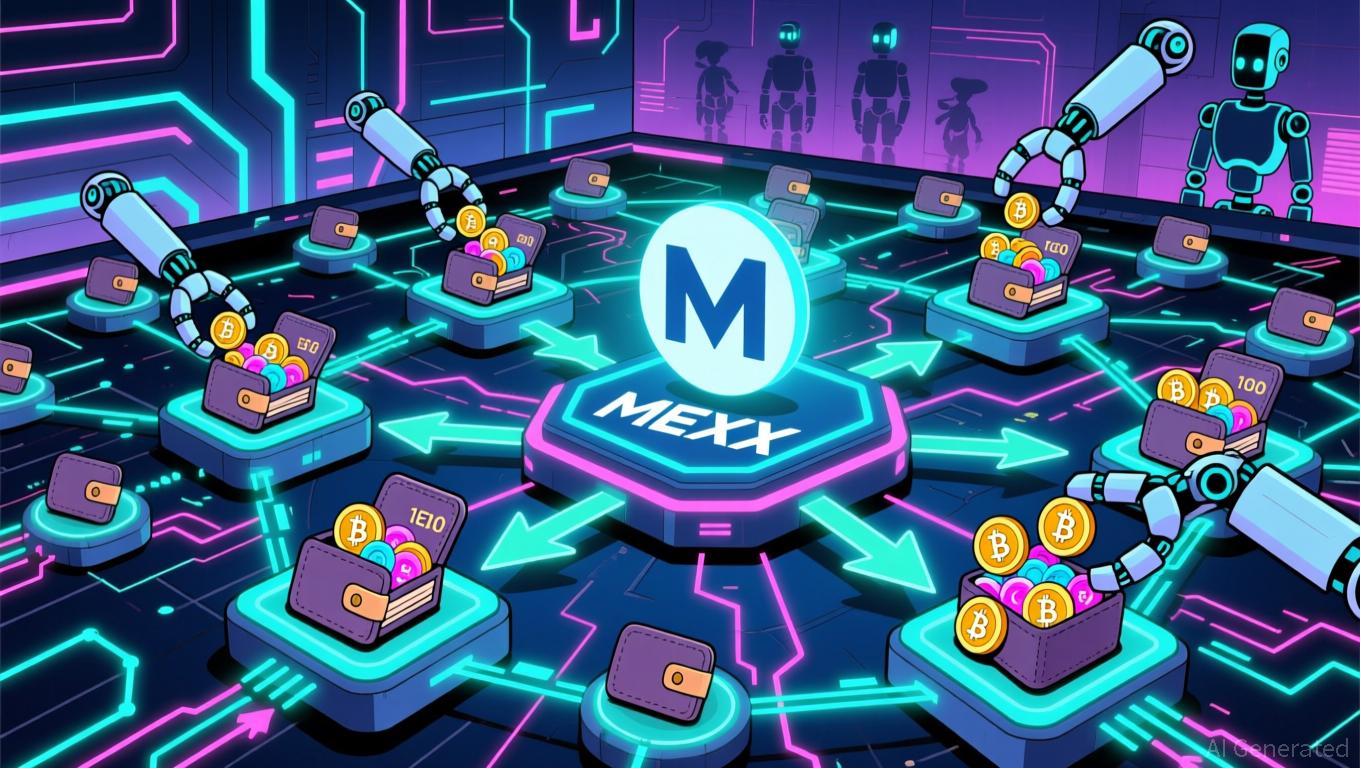Wallets associated with Edel Finance have come under investigation after reportedly securing 30% of the EDEL token supply during its launch on November 12,
as indicated by blockchain analysis
. Reports suggest that around 160 wallets, funded through a coordinated approach involving Binance and MEXC, acquired the tokens using a method similar to "sniping," where automated bots purchase tokens immediately at launch. This $11 million acquisition has sparked debate about fairness and openness in DeFi projects centered on tokenized assets.
Bubblemaps revealed that these wallets received
Ether
(ETH) and were organized through several layers of new wallets before making trades. Half of the tokens bought were split among 100 additional wallets, all connected to MEXC, which the platform claims demonstrates a "direct connection between the team and the snipers." The analytics provider also noted that the token contract code specifically included these secondary wallets, implying deliberate concealment.
Edel Finance's co-founder responded to the allegations
, asserting that the actions were in line with the project's planned token distribution.
The EDEL token, which supports a lending platform for tokenized stocks and real-world assets (RWAs), has seen its market value fall to $14.9 million,
marking a 62% drop in the last week
, according to CoinMarketCap. This sharp decline highlights the difficulties new DeFi ventures face, especially those operating at the intersection of traditional finance and blockchain technology.
Edel’s system enables users to earn returns
by lending out tokenized shares, a model gaining popularity as platforms such as
Ondo
Finance broaden their tokenized asset services. Still, the recent controversy may damage confidence in the project’s governance, which is vital for DeFi protocols that depend on community involvement.
The sniping controversy brings to light widespread concerns about how tokens are distributed in the crypto industry. While some believe that early adopters using bots are simply part of market behavior, others argue these strategies are unfair and manipulative. This discussion is especially relevant in DeFi, where decentralization is a fundamental value.
This episode also illustrates
the intensifying race among projects to tokenize real-world assets, a movement gaining momentum as major institutions like BlackRock and Fidelity enter the space.
Edel’s co-founder has yet to elaborate on the token allocation process, leaving the community to speculate about the company’s motives. At the same time, the project’s tokenomics—featuring a total supply of 1 billion EDEL and a circulating supply of 1.4 million—point to significant centralization at launch
based on MEXC figures
. Such arrangements are often criticized for concentrating value among early participants, which can hinder broader adoption over time.
This dispute adds to a turbulent year for tokenized assets, both in terms of regulation and market activity. In October, Ondo Finance expanded its tokenized products to the
BNB
Chain, while
Reliance Global Group moved its digital asset reserves
into
Zcash
(ZEC). These developments reflect a broader trend toward diversifying reserves and utilizing blockchain for institutional-grade solutions. However, the Edel situation demonstrates the risks of rapid token launches and the importance of strong governance to ensure fair participation.
As the cryptocurrency sector evolves, incidents like this are likely to impact investor confidence and attract regulatory attention. For now, Edel Finance’s response to these issues and its commitment to transparency will be crucial in shaping its future within the DeFi landscape.
